Find Help
More Items From Ergsy search
-

BSL Syphilis
Relevance: 100%
-
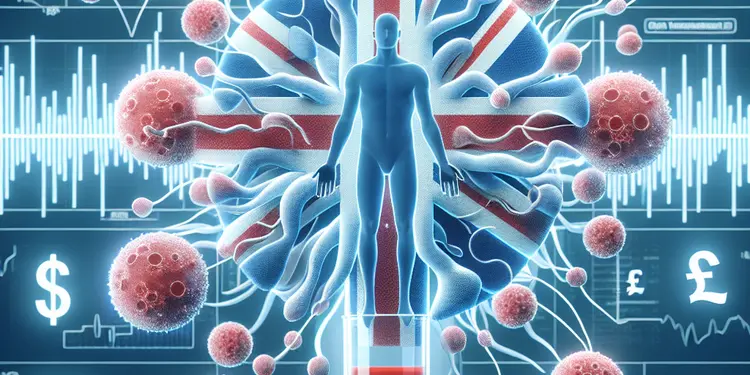
Can syphilis be transmitted via blood transfusion?
Relevance: 85%
-
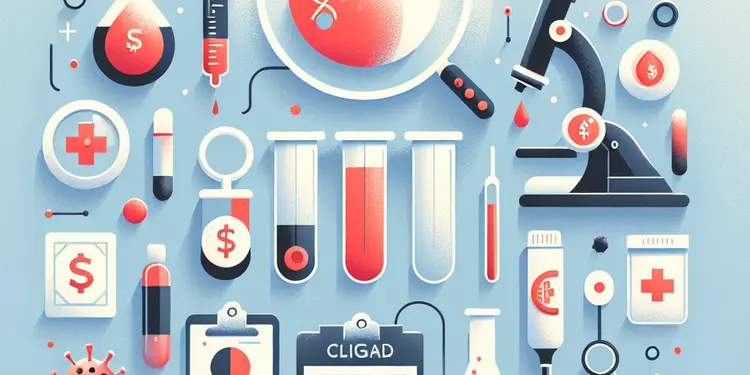
What other viruses are tested for in blood donations?
Relevance: 32%
-

What diseases can be spread by blood transfusions?
Relevance: 30%
-
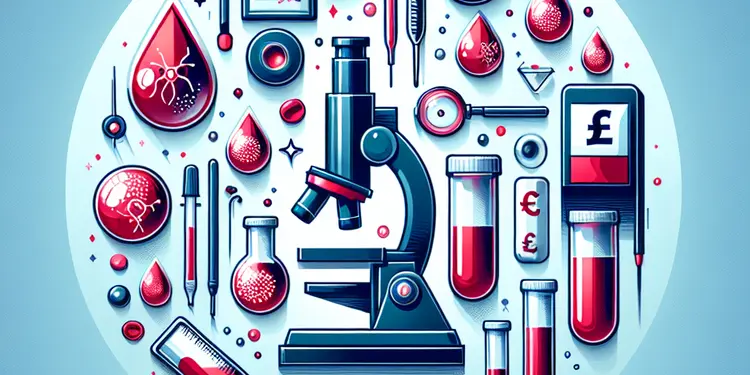
How is blood screened to prevent disease transmission?
Relevance: 21%
-

NHS STI (Sexually Transmitted Infections) Information Video
Relevance: 18%
-

Let's Talk Sexual Health - Home Self Testing Kits
Relevance: 18%
-
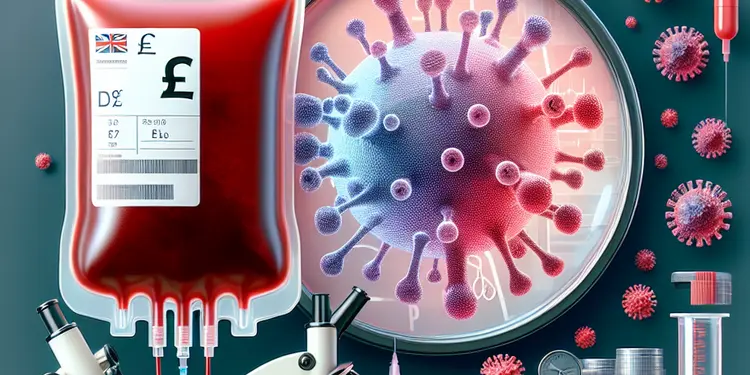
What is the most common disease transmitted by blood transfusion?
Relevance: 17%
-
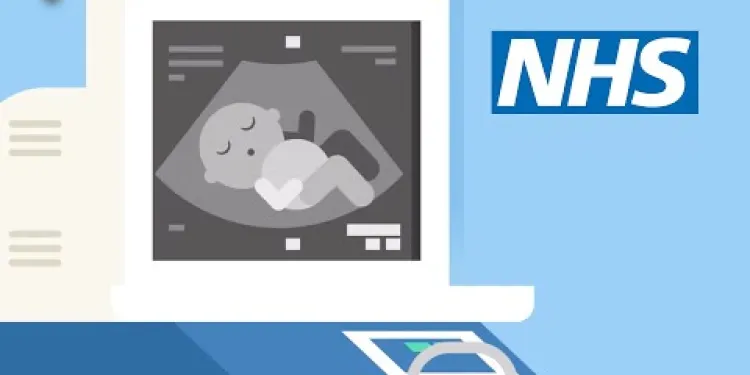
Screening tests for you and your baby | NHS
Relevance: 17%
-
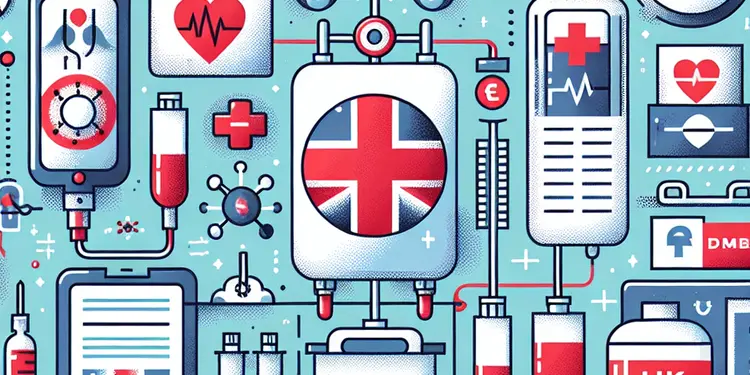
What measures are taken to prevent disease transmission in blood transfusions?
Relevance: 17%
-

Let's Talk Sexual Health - Home Self Testing Kits
Relevance: 14%
-

Are there any less common causes of jaundice in newborns?
Relevance: 14%
-

Sexually transmitted infections STIs
Relevance: 12%
-

Is blood used for transfusions safe?
Relevance: 12%
-

Are there global differences in screening for blood transfusions?
Relevance: 11%
-
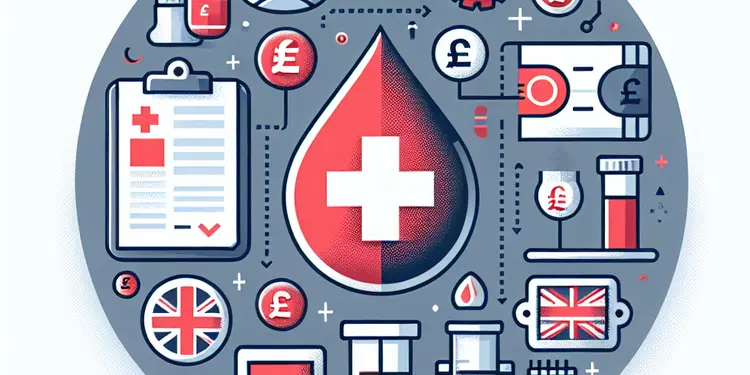
Why is blood donation history important in preventing disease transmission?
Relevance: 6%
-

What tests are available for diagnosing Lyme disease?
Relevance: 5%
-
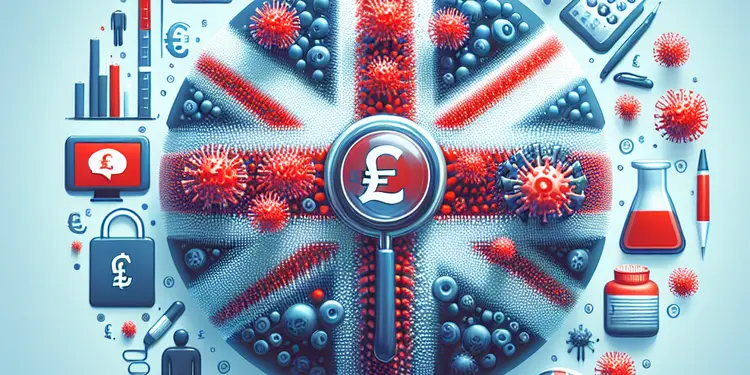
Is Zika virus screened for in blood transfusions?
Relevance: 5%
BSL Syphilis Information
What is Syphilis?
Syphilis is a sexually transmitted infection (STI) caused by the bacterium Treponema pallidum. Often described as 'the great imitator' due to its wide range of symptoms, syphilis can affect many parts of the body. If left untreated, it can progress over years and lead to serious health issues.
Transmission and Symptoms
Syphilis is primarily spread through direct contact with a syphilis sore during vaginal, anal, or oral sex. These sores can appear on the external genitals, vagina, anus, rectum, or inside the mouth. The infection progresses through multiple stages:
- Primary stage: Characterized by the presence of painless sores at the site of infection.
- Secondary stage: Manifested through skin rashes and mucous membrane lesions.
- Latent stage: A period with no visible symptoms, which can last for years.
- Tertiary stage: Can occur 10-30 years after infection, potentially causing severe damage to the heart, brain, and other organs.
Diagnosis and Treatment
Syphilis can be diagnosed through blood tests and by examining sores with a microscope. In the United Kingdom, sexual health clinics offer confidential testing and treatment. Early detection is crucial for effective treatment and prevention of complications. Penicillin is the preferred antibiotic for treating syphilis; alternative antibiotics are available for those allergic to penicillin.
Prevention
Preventing syphilis involves practicing safe sex, including using condoms and dental dams. Regular STI screenings are essential, especially for those with multiple partners. Prompt treatment and informing sexual partners if diagnosed are vital steps to stop the spread of the infection.
Importance of Awareness
Awareness and education about syphilis are essential for public health. Accessible information, including resources in British Sign Language (BSL), ensures that everyone, including the deaf community, can recognize symptoms and seek timely medical help. Being informed helps reduce stigma and encourages conversations about sexual health.
BSL Syphilis Information
What is Syphilis?
Syphilis is a disease you can catch from having sex. It is caused by tiny germs. Syphilis can make different parts of your body feel sick. If you do not get treatment, it can make you very ill over time.
How You Can Catch Syphilis and Signs to Watch For
You can catch syphilis by touching a sore during sex. This can happen in your private parts or mouth. Syphilis can show up in stages:
- First stage: You might get a sore where the germs got into your body. The sore doesn't hurt.
- Second stage: You might get a rash or feel rough patches on your body.
- Hidden stage: You might not notice any signs for a while, even though the germs are still there.
- Last stage: Many years later, it can hurt your heart, brain, or other parts.
How Doctors Find and Treat Syphilis
Doctors can find syphilis with a blood test or by looking at the sores. In the UK, you can go to special clinics for private testing and treatment. Finding syphilis early is important. Penicillin medicine can help fight the germs. If you cannot have penicillin, there are other medicines.
How to Stay Safe from Syphilis
To stay safe, use condoms or special sheets called dental dams. Get checked for diseases if you have many partners. If you have syphilis, tell your partners so they can get checked too.
Why Knowing About Syphilis Matters
Knowing about syphilis is important to keep everyone healthy. Information should be easy to understand, like using British Sign Language (BSL) for those who need it. When people know more, they can talk about staying healthy and not feel embarrassed.
Frequently Asked Questions
What is syphilis?
Syphilis is a sexually transmitted infection (STI) caused by the bacteria Treponema pallidum.
How is syphilis transmitted?
Syphilis is primarily transmitted through sexual contact, including vaginal, anal, and oral sex. It can also be passed from mother to child during pregnancy.
What are the symptoms of syphilis?
Symptoms vary depending on the stage of the infection. They can include sores, rashes, fever, swollen lymph glands, sore throat, and muscle aches.
Can syphilis be cured?
Yes, syphilis can be cured with appropriate antibiotic treatment, typically involving penicillin injections.
What happens if syphilis is left untreated?
If left untreated, syphilis can cause serious health problems, including damage to the heart, brain, and other organs. It can also be fatal.
How can I prevent syphilis?
Prevention methods include using condoms consistently, reducing the number of sexual partners, and getting regular sexual health check-ups.
Is syphilis common in the UK?
While syphilis is not as common as some other STIs, rates have been increasing in the UK in recent years.
How is syphilis diagnosed?
Syphilis is diagnosed through blood tests or examination of sores to detect the presence of Treponema pallidum.
What are the stages of syphilis?
Syphilis progresses through four stages: primary, secondary, latent, and tertiary, each with different symptoms and levels of severity.
Can I get syphilis again after treatment?
Yes, you can get syphilis again if you are exposed to the bacteria through sexual contact.
Is syphilis more serious in certain populations?
Syphilis can be more serious in pregnant women, as it can cause complications or be passed to the baby. It's also particularly concerning for people with weakened immune systems.
Can syphilis be transmitted through non-sexual means?
While sexual contact is the primary mode of transmission, syphilis can also be transmitted through direct contact with a syphilis sore or during childbirth if the mother is infected.
What should I do if I think I have syphilis?
If you suspect you have syphilis, you should contact a healthcare provider or sexual health clinic for testing and treatment.
Is there a vaccine for syphilis?
No, there is currently no vaccine to prevent syphilis. Safe sexual practices and regular testing are key to prevention.
How can I support a partner who has been diagnosed with syphilis?
Support your partner by encouraging them to seek treatment, practicing safe sex, and getting tested yourself to ensure you are not infected.
What is syphilis?
Syphilis is a type of infection. It is caused by tiny germs. These germs can make you sick.
If you think you might have syphilis, it is important to see a doctor. The doctor can give you medicine to help you feel better.
Reading tools: It can help to use a ruler or your finger to follow the words. You can also ask someone you trust to read with you.
Syphilis is an illness you can get from sex. It is caused by tiny germs called bacteria. The name of these bacteria is Treponema pallidum.
How do people get syphilis?
Syphilis is a disease you can catch from another person. It spreads when people have close contact, like touching skin during sex.
If you are worried, it’s good to talk to a doctor. You can also use pictures or videos to understand better.
Syphilis is a sickness you can get from having sex. This includes sex like vaginal, anal, or oral sex. A mom can also give it to her baby when she is pregnant.
What are the signs of syphilis?
Syphilis is an illness. Here are some signs you might have it:
- You might get a sore that doesn’t hurt.
- You might feel tired or unwell.
- You might see a rash or spots on your skin.
- You might have a fever, which means you feel very hot.
- You might have swollen glands, which means bumps on your neck or armpits.
If you have these signs, it is important to tell an adult or doctor.
To understand better, you can:
- Ask someone to read with you.
- Use pictures to help explain.
Signs of the sickness are different at each stage. They can be:
- Sores on the skin
- Red spots or patches (rashes)
- High body temperature (fever)
- Swollen little knots in your neck or underarms (lymph glands)
- Hurts when you swallow (sore throat)
- Body or muscle pains
To help understand, you can use pictures or story maps. It helps to talk with someone who can explain things slowly. You can also make flashcards with pictures for each symptom.
Can syphilis be cured?
Yes, you can cure syphilis! Syphilis is a type of infection.
If you think you have syphilis, you should see a doctor. The doctor can give you medicine called antibiotics. This medicine will make you better.
It is important to see the doctor as soon as you can. The sooner you take the medicine, the easier it will be to get better.
If you need help, you can ask a family member or a friend to go with you to the doctor. You can also write down questions you have before you go.
Yes, doctors can cure syphilis. They use special medicine called antibiotics, and usually give it as a penicillin shot.
What happens if syphilis is not treated?
Syphilis is a kind of sickness that you can get. It is very important to see a doctor if you think you have it. If you do not see a doctor and treat syphilis, it can make you very sick.
- At first, you may get a sore. This is called a "chancre." It does not hurt, but you need to see a doctor.
- Later, you might get a rash on your body. You may still not feel very sick, but you need treatment.
- If syphilis is not treated, it can cause big problems. It can make your brain, heart, and other parts of your body very sick.
It is good to get medicine from a doctor. This will help you get better.
How to Get Help
Here are some things you can do:
- Tell an adult you trust if you feel worried.
- Ask to go to a doctor for a check-up.
- Look up information online with an adult to learn more.
- You can use tools like read-aloud apps to help read the information.
If syphilis is not treated, it can make you very sick. It can hurt your heart, brain, and other parts of your body. It can also be deadly.
How can I stop syphilis?
Syphilis is an illness you can get from sex. It is important to stay safe. Here are some simple ways to stop it:
- Use a condom: Always use a condom when having sex. This helps stop germs.
- Limit partners: Having sex with fewer people can help keep you safe.
- Talk to your partner: Make sure you and your partner are both safe. Talk about getting tested.
- Get tested: Go to the doctor to check for syphilis. It’s good to know if you are healthy.
If you need help, ask a doctor or a nurse. They can give you more information. Remember, it is okay to ask questions if you do not understand.
To stay safe, you can use condoms every time, have fewer people you have sex with, and see a doctor for regular check-ups to make sure everything is okay.
Is syphilis common in the UK?
Syphilis is a disease you can get from an infection. It is not very common in the UK, but it can still happen. It is important to be safe and get checked if you think you might have it.
Tip: If you find reading hard, ask someone to read with you, or use an audio tool to listen to the text.
Syphilis is a type of illness you can get from sex. It is not as common as some other sicknesses you can get this way. But, more people in the UK have been getting it in the past few years.
To help understand more, you can:
- Read simple books about health
- Watch videos for kids about staying healthy
- Talk to a doctor or nurse if you have questions
How do doctors find out if someone has syphilis?
Doctors use blood tests or look at sores to find out if someone has syphilis. They look for a germ called Treponema pallidum.
What are the steps of syphilis?
Syphilis is a sickness. It happens in steps. Here are the steps:
- First Step: You might get a sore. It does not hurt. It usually shows up where the germs got into your body.
- Second Step: You might get a rash. You can also feel sick, like having a fever or sore throat.
- Third Step: The germs might sleep. You might not feel sick, but the germs are still there.
- Fourth Step: This is a serious step. The sickness can hurt your heart, brain, or other body parts.
If you think you have syphilis, it is important to see a doctor. They can help you get better.
To help understand more:
- Use simple words.
- Draw pictures of each step.
- Ask someone you trust to explain.
Syphilis is an illness that changes over time. It has four stages: primary, secondary, latent, and tertiary. Each stage has different signs and seriousness.
If you need help understanding, you can use pictures or videos. Talking to someone, like a teacher or helper, can also make it easier.
Can I get syphilis again after treatment?
You can get syphilis again even after you have been treated. This is because treatment only cures the syphilis you have now. It does not stop you from getting it again in the future. So, always be careful and protect yourself.
To help you remember:
- Use a condom when you have sex. This can help stop syphilis from spreading.
- Go to the doctor regularly to check if you are healthy.
- Talk to your partner about safe sex.
Yes, you can get syphilis again if you have sex with someone who has the infection.
Is syphilis more serious for some people?
Syphilis can be more dangerous for some people. It is important to know who might need extra care:
- Babies: If a mother has syphilis, the baby can be born with it. This can make the baby very sick.
- People with weak immune systems: These people might get sicker from syphilis because their bodies have a harder time fighting it.
- Communities with less healthcare: Some places do not have enough doctors or clinics. People there might not get treatment quickly.
If you have syphilis or think you might, it is important to see a doctor. They can help you get better.
If reading is hard, ask someone you trust to read this with you.
Syphilis can be very serious for pregnant women. It can cause problems for the mother and the baby. It's also a big concern for people who have weak bodies and get sick easily.
Can you get syphilis without having sex?
Syphilis is an illness caused by germs. People usually get it from having sex. But, sometimes, you can get it in other ways. This is less common.
If you are worried about syphilis, talk to a doctor. They can help you stay healthy.
Here are some things that can help:
- Use pictures or videos to learn more.
- Talk about it with someone you trust.
- Write down questions to ask your doctor.
Syphilis usually spreads through sex. But, you can also get syphilis by touching a syphilis sore. If a mom has syphilis, she can give it to her baby when the baby is born.
What should I do if I think I have syphilis?
If you think you have syphilis, tell a doctor. They can help you feel better.
Here is what you can do:
- Go to a clinic or hospital.
- Tell a nurse or doctor about how you feel.
- You might need a test. It is quick and easy.
- The doctor can give you medicine to make you better.
It is okay to ask a friend or family member to go with you.
You can also use a picture book or a simple video to help you understand more.
If you think you might have syphilis, it’s important to talk to a doctor or visit a sexual health clinic. They can test you and give you the right medicine if you need it.
Is there a medicine that stops syphilis?
No, there is no shot or medicine that stops syphilis.
But syphilis can be treated with a different medicine from a doctor.
If you think you have syphilis, see a doctor. They can help you.
Here are some things that might help:
- You can ask someone to go to the doctor with you.
- Write down questions you have before you go.
- Use pictures or apps to help understand.
No, there is no shot to stop syphilis right now. To stay safe, use protection when having sex and get checked regularly.
How can I help my partner who has syphilis?
Your partner has syphilis. Syphilis is an illness. It can be treated.
Here are ways you can help:
- Go to the doctor with them.
- Listen to them.
- Encourage them to take their medicine.
- Learn about syphilis together.
- Stay supportive and be kind.
Some tools that might help:
- Use reminder apps to remember medicine times.
- Write down questions to ask the doctor.
- Read easy books or watch videos about syphilis.
Help your partner by telling them to go to the doctor. Always use protection when having sex. Get a test to make sure you are not sick too.
Useful Links
This website offers general information and is not a substitute for professional advice.
Always seek guidance from qualified professionals.
If you have any medical concerns or need urgent help, contact a healthcare professional or emergency services immediately.
Some of this content was generated with AI assistance. We’ve done our best to keep it accurate, helpful, and human-friendly.
- Ergsy carfully checks the information in the videos we provide here.
- Videos shown by Youtube after a video has completed, have NOT been reviewed by ERGSY.
- To view, click the arrow in centre of video.
- Most of the videos you find here will have subtitles and/or closed captions available.
- You may need to turn these on, and choose your preferred language.
- Go to the video you'd like to watch.
- If closed captions (CC) are available, settings will be visible on the bottom right of the video player.
- To turn on Captions, click settings .
- To turn off Captions, click settings again.
More Items From Ergsy search
-

BSL Syphilis
Relevance: 100%
-

Can syphilis be transmitted via blood transfusion?
Relevance: 85%
-

What other viruses are tested for in blood donations?
Relevance: 32%
-

What diseases can be spread by blood transfusions?
Relevance: 30%
-

How is blood screened to prevent disease transmission?
Relevance: 21%
-

NHS STI (Sexually Transmitted Infections) Information Video
Relevance: 18%
-

Let's Talk Sexual Health - Home Self Testing Kits
Relevance: 18%
-

What is the most common disease transmitted by blood transfusion?
Relevance: 17%
-

Screening tests for you and your baby | NHS
Relevance: 17%
-

What measures are taken to prevent disease transmission in blood transfusions?
Relevance: 17%
-

Let's Talk Sexual Health - Home Self Testing Kits
Relevance: 14%
-

Are there any less common causes of jaundice in newborns?
Relevance: 14%
-

Sexually transmitted infections STIs
Relevance: 12%
-

Is blood used for transfusions safe?
Relevance: 12%
-

Are there global differences in screening for blood transfusions?
Relevance: 11%
-

Why is blood donation history important in preventing disease transmission?
Relevance: 6%
-

What tests are available for diagnosing Lyme disease?
Relevance: 5%
-

Is Zika virus screened for in blood transfusions?
Relevance: 5%


